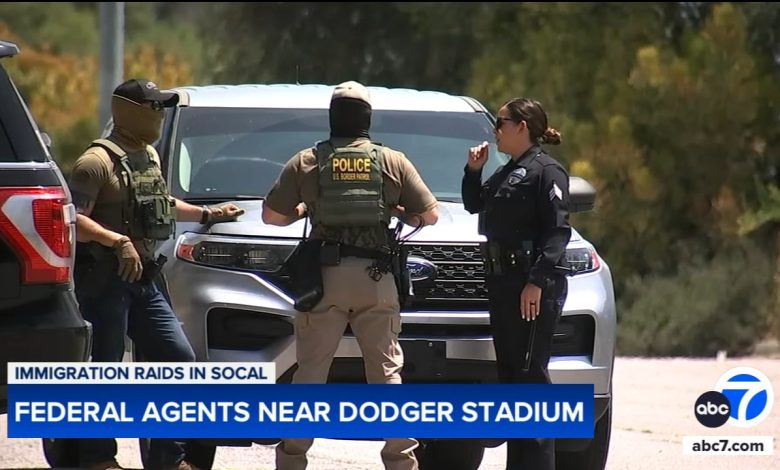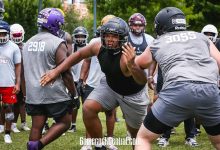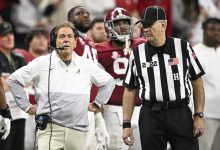The Dodgers stated ICE agents were denied parking lot access at Dodger Stadium; tonight’s game will proceed as scheduled.

On a tense morning at Dodger Stadium, the Los Angeles Dodgers released a statement on social media platform X (formerly Twitter) confirming that Immigration and Customs Enforcement (ICE) agents had requested permission to access the stadium’s parking lots. The organization stated unequivocally that access was denied, emphasizing their commitment to protecting their grounds and community. The statement also reassured fans that tonight’s game would be played as scheduled, despite the disruption.
This incident, which unfolded amid heightened national debate over immigration enforcement and community safety, underscores the Dodgers’ complex position as both a major sports franchise and a civic institution deeply embedded in Los Angeles’ diverse social fabric.
The Dodgers’ Official Statement and Immediate Reactions
The official statement posted by the Dodgers on X read:
“This morning, ICE agents came to Dodger Stadium and requested permission to access the parking lots. They were denied entry to the grounds by the organization. Tonight’s game will be played as scheduled.”
This concise yet firm message conveyed several key points: the Dodgers’ refusal to allow ICE access to private property, their support for the local community, and a commitment to ensuring the continuity of the baseball schedule for fans and players alike.
Fans, activists, and local officials responded quickly, expressing a mixture of support and concern. Many praised the Dodgers for standing firm against what they saw as an overreach by immigration enforcement authorities, while others raised questions about security, public safety, and the potential impact on fans attending the game.
Background: ICE Operations and Community Sensitivities in Los Angeles
Los Angeles has long been a focal point for discussions about immigration policy, enforcement, and sanctuary city status. As one of the most ethnically diverse metropolitan areas in the country, the city’s identity is intertwined with immigrant communities from Latin America, Asia, and beyond.
ICE operations in urban areas frequently spark controversy, particularly when enforcement activities are perceived to target vulnerable populations, including undocumented immigrants, families, and workers. Actions by ICE can have wide-reaching ripple effects, causing fear and uncertainty in communities and sometimes disrupting everyday life.
Against this backdrop, the Dodgers — one of LA’s most beloved institutions — find themselves in a delicate balancing act. On one hand, they operate a major public venue hosting thousands of fans, including many from immigrant communities. On the other, they must navigate relationships with law enforcement and government agencies responsible for public safety and legal compliance.
Denying ICE agents access to Dodger Stadium parking lots sends a clear message about the organization’s stance on community protection and privacy. It also highlights the broader role sports franchises can play as community leaders beyond the field.
What Does Denying ICE Access Mean Legally and Operationally?
Legally, the Dodgers, as private property owners, have the right to control access to their grounds, including parking lots. Their decision to deny ICE agents entry likely stems from concerns about the implications of federal enforcement activity on private property, the safety of fans, and the organization’s own values.
Operationally, granting access to ICE could have introduced significant logistical challenges. Large-scale enforcement operations at a major sporting venue risk chaos and panic among fans and staff. Moreover, the Dodgers have a vested interest in maintaining a secure, welcoming environment during games.
The refusal to allow ICE agents in the parking lots does not mean the Dodgers are obstructing justice or refusing cooperation with law enforcement generally. Rather, it indicates a measured approach to protecting the stadium environment while balancing legal and ethical considerations.
Impact on Tonight’s Game and Fan Experience
The Dodgers’ assurance that tonight’s game will proceed as scheduled was crucial to quell fears among fans and the broader baseball community. Games at Dodger Stadium are major events, drawing tens of thousands of spectators and extensive media coverage.
Disruptions due to law enforcement activity could have resulted in safety concerns, traffic issues, or attendance drops. By managing the situation calmly and denying access to ICE agents, the Dodgers helped preserve the game day experience.
Additionally, the team likely coordinated closely with local law enforcement, stadium security, and city officials to ensure safety and security without escalating tensions or causing fan alarm.
Fans attending the game were advised to arrive early and remain vigilant but were reassured by the organization’s proactive communication and commitment to a smooth event.
Broader Community and Political Responses
The incident quickly gained attention from community groups, politicians, and advocacy organizations. Many immigrant rights groups praised the Dodgers for taking a stand in solidarity with vulnerable populations.
Local elected officials, including city council members and state legislators, issued statements reaffirming Los Angeles’ sanctuary city principles and condemning aggressive immigration enforcement tactics that could harm families and community trust.
Some critics, however, questioned whether denying ICE access could complicate enforcement of immigration laws and public safety initiatives. This debate mirrors larger national conversations about the role of sanctuary policies, cooperation with federal agencies, and community trust.
Sports commentators and social analysts highlighted the Dodgers’ decision as emblematic of a new era where sports franchises wield considerable influence beyond athletics — shaping social discourse and local politics.
Dodgers’ History of Community Engagement and Social Justice
This incident fits within a broader pattern of the Dodgers engaging with social justice and community issues. Over the years, the franchise has supported initiatives promoting racial equality, economic empowerment, and immigrant rights.
Dodger Stadium is more than a sports venue; it’s a cultural landmark where fans from all walks of life gather. The Dodgers have increasingly recognized their responsibility to create an inclusive environment reflecting Los Angeles’ diversity.
From charitable efforts supporting immigrant families to public statements on social issues, the team has positioned itself as a community partner, not just an entertainment provider.
Denying ICE access can be seen as a continuation of this commitment — reinforcing a protective stance toward fans and neighbors who may feel targeted or threatened.
Potential Long-Term Implications
While the immediate situation has been contained with no disruption to tonight’s game, the incident raises questions about future interactions between federal agencies and major sports venues, especially in cities with strong sanctuary policies.
The Dodgers’ refusal to grant access sets a precedent other franchises might consider when faced with similar requests. It also places the organization at the intersection of legal, ethical, and public relations challenges in a polarized environment.
For the Dodgers, maintaining open communication with fans, city officials, and law enforcement will be key to navigating future incidents. Transparency and a clear articulation of policies can help prevent misunderstandings and ensure safety.
Additionally, the franchise’s stance may inspire further community support but also scrutiny from those opposing sanctuary measures.
What Fans Can Expect Moving Forward
For fans, the Dodgers’ handling of this incident underscores the importance of being informed and aware of how off-field events can affect game day experiences. The organization’s quick communication and firm stance provide reassurance that their safety and comfort remain priorities.
Going forward, fans might see the Dodgers continue to take public positions on social justice and community protection, reflecting the values of the city and its people.
The team will likely remain vigilant in balancing cooperation with law enforcement and advocacy for the community’s well-being.
The Los Angeles Dodgers’ decision to deny ICE agents access to Dodger Stadium parking lots is a powerful statement at the crossroads of sports, community, and politics. By protecting their grounds and reaffirming their commitment to a safe and inclusive environment, the Dodgers have demonstrated leadership beyond baseball.
Tonight’s game will proceed as planned, a testament to the organization’s ability to manage complex situations with transparency and resolve. As the team and fans look ahead, this episode serves as a reminder of the multifaceted role sports franchises play in shaping community dialogue and standing up for shared values.
The Dodgers’ stance will undoubtedly resonate within Los Angeles and beyond, contributing to ongoing conversations about immigration, public safety, and the responsibilities of influential institutions in today’s society.









